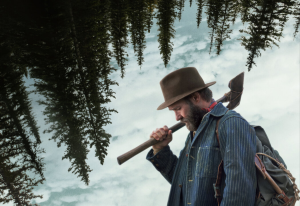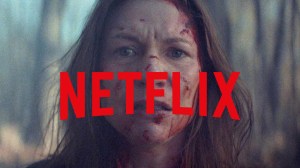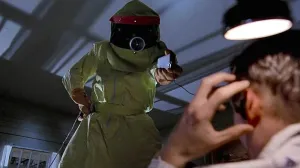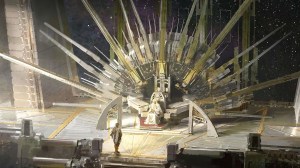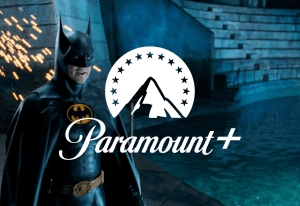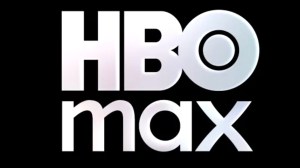If you’re a fan of Dragon Ball, then there is one film out there you’ve surely tried to forget. A few years back, Hollywood gave Akira Toriyama’s franchise a live-action go with Dragonball Evolution, and the adaptation flopped harder than Yamcha after taking on Nappa. The would-be blockbuster failed to impress critics or fans, and audiences worldwide were dismayed to see what Dragon Ball had been reduced to.
Videos by ComicBook.com
In fact, many felt Dragonball Evolution would be the end of live-action anime, but that doesn’t look like it is the case any more. After all, Robot Underdog just debuted its full adaptation of Dragon Ball Z‘s “History of Trunks,” and Kenny Leu has plenty to say about bringing Gohan to life in the film.
Born in Taiwan, Leu was raised in the Bay Area and attended university at UC Berkeley before turning his eye towards acting. The actor has starred in a handful of projects with The Long Road Home being next on Leu’s list. When the opportunity arose from Leu to audition for Dragon Ball Z: Light Of Hope, the actor jumped on the chance to bring his childhood anime dreams to life. After a couple long years, Leu’s take on Gohan is now out for the world to see, and ComicBook had the chance to speak with him about fan-films, the future of live-action anime, and how it really feels to play a Super Saiyan:
Question 1
Clearly Dragon Ball Z has a history with live action in Hollywood and you guys have very much surpassed that already. Can you talk about how that history impacted this project?
Oh my goodness, yeah this is probably one of the most fascinating things that I’ve ever experienced, which is … I discovered Dragon Ball Z when I was … Even though I’m Asian and I’m pretty tied to the Asian community because I was born there, but I actually wasn’t exposed to Dragon Ball until I was like 12 or 13, and I just stumbled across a random episode of Dragon Ball on like PBS or something. This was before Toonami, before … I think WB20 had it, like early in the morning or something.
Anyway, if I watched it all in secret, like oh, this is so cool. This is a like a guilty pleasure. I knew that it was something called anime, and back then it was just so underground that I assumed, until I got cast in this thing, where I was like man, this is such an asian thing that nobody else knows about. I felt like it was like going into a high stakes game, watching my anime. This is in college, too. I went to college, and the majority of my classmates were all Asian or foreigners, so we loved watching anime. I had no idea, no idea until I got cast in this thing and we started attended a bunch of Comi Cons, just how universal it is.
It is … Dragon Ball I feel like has kind of transcended anime in a lot of ways, where anime can still be seen as … It still has a stigma of this and that, but Dragon Ball is just something that has really stepped out of that, and I’ll give you a couple of examples of something that Donnie, Rita and I … Donnie and Rita are the creators of Dragon Ball L Light of Hope. They are a husband and wife team. Donnie’s African-American, Rita’s Hispanic-American. We would go around advertising at the Comi Con events because we’re going to have a panel and we would spend the previous … Let’s say we’re doing a panel on Sunday in the afternoon, then we would spend all of Saturday just handing out fliers, saying, oh hey, are you guys fans of Dragon Ball Z? We do this live action thing and come check it out.
A cool tactic that we came up with was … I knew that all my Asian friends were watching Dragon Ball Z, or knew what it was, so I would, as soon as I seen some Asian kid then I’m like here, here. Are you interested? Are you interested? Donnie, being black American, he was like Kenny, check this out. I’ll go up to any black guy and they will be huge fans of Dragon Ball. I would be like, what? It was just completely eye-opening. Then, seeing the crowds that come out to our panels, it doesn’t matter what age you are. Like what you said, guys like up to 30’s, 40’s, even 50 year old man are just huge fans of this show, and boys and girls, too. It just completely blew my mind because for so much of my life I just assumed that it was like this Asian thing that I had to keep in a closet because nobody else would appreciate it. It was just so cool to watch how diverse the crowd actually is.
Question 2
Dragon Ball does have a massive audience and I know you were just saying that you didn’t really realize kind of the huge scope of what this fandom for Dragon Ball is until you got involved with Light of Hope. How did you get involved with this project?
I had first moved to LA about three and a half, four years ago, and at the time … Everybody’s first year here is all like, how do I be seen by important people? One of the things you do out here as an actor is you sign up for casting websites.
I remember getting an audition notice for this project, actually, and so yeah, I was like this is Dragon Ball. This is so cool. I submitted and they brought me in. I remember getting an audition notice for this project, actually, and so yeah, I was like this is Dragon Ball. This is so cool. I submitted and they brought me in for an audition, and went through a couple call backs, and then I end up landing the roll. It was really cathartic because I’ve been practicing to be a Saiyan my whole life, it’s useful.
Question 3
I think I speak for basically the entire fandom when I get to ask this, because not many people can answer it, what is it like getting to play Gohan and go Super Saiyan? How wrecked is your voice after doing those scenes?
That’s a very good question. It’s insane. First, like I said, it’s so cathartic to be able to play a Saiyan because you’ve been practicing this your whole life. Secondly, especially when we’re doing the fight scenes and Gohan needs to be tapped into that rage, it takes a lot of energy. I remember we shot out at Salton Sea, which is like three hours away from here, it’s like this wasteland. There’s this really crazy history behind the Salton Sea by the way, if you can look it up really quick. On the high level, basically it was supposed to be another Las Vegas back in the 60’s, and the lake, or the sea, Salton Sea, got loaded up with too much salt and all the wildlife inside died.
Yeah, it’s just like a bunch of rotting corpses that got washed up on shore, and the sulfur and all the decaying body parts just kind of destroyed any hope of this place being a resort, even though people had pumped in hundreds of millions of dollars. What’s left up there is just a bunch of run down buildings, and houses, and people just ran from there. It looks like an apocalypse.
Anyway, we were out there shooting for some of our most climactic fight scenes, and we were baking out there. It’s kind of in the middle of nowhere. It’s really creepy out there because there’s almost nobody out there, except for just a bunch of leftover things. I’m talking about houses still with furniture in them and stuff. Yeah, it was insane being able to put myself in there, and then just screaming my lungs out for the three days that we were out there.
On top of that there’s another layer of stuff that I had to go through, which was we wanted to approach this project with as much seriousness as possible. There was a point where they were trying to figure out, how do we adapt anime into live action? That’s something that I think Hollywood is still trying to do. There’s still trying to do a Death Note with … Akira they’re attempting too, Cowboy Bebop they’re attempting, too. A lot of the projects that I don’t think have done well because they haven’t done it right yet, just like they’re trying to figure out comic book movies a couple decades ago.
Anyways, one of the big things that we had to do was approach this manga, which is very based in Japanese culture, how do we adapt that from a “cartoon” and turn it into real life? Some of the things that I had to do as Gohan was really analyze him from the perspective of like if this was like a real person. I had a lot of work for figuring out what kind of person is he? We didn’t want to make it cannon where … Like it is in the cartoon just doesn’t translate into live action, so a big hurdle that we had to go through was how do we translate that to live action? One of the big things I had to do was basically look at Gohan like a person and say like, man, he’s actually got, in this timeline especially, he’s got some Daddy issues, you know?
His dad is the Superman of the world, and once he dies then the mantle kind of falls on him to meet the world’s demands, even though he doesn’t want it. He never wanted it. He wanted to be a scholar from the time he was a kid, and he’s kind of thrust into this world where he has to be a Superman. The thing that I tried capturing with his character, and trying to add layers to some of our scenes, is he’s not entirely comfortable with it, you know? I think his arch in this storyline is that he goes from this guy who kind of doesn’t want to be … he knows he’s not as good as his dad. He’s trying to be a big brother to who’s left, which is Trunks and Bulma, and he’s not terrific at it, but in the end he realizes that if we keep on going on like this then Trunks will probably die, so he decides to fight with all of this heart, ultimately.
I identified that as a big arch of his, like an emotional arch for him, kind of like I would for any “real” character that I would have to play on TV, or in the traditional movies and all. Yeah, that’s a good question because there’s a lot of answers to that.
Question 4
Where do you think Hollywood’s live-action take on Dragon Ball had its biggest pitfalls?
The fact that the writer didn’t know anything about Dragon Ball, was that they decided to go very … They didn’t understand the characters at all, right?
They changed so many things it was just … It was like they looked like that but they didn’t act like that, and I think that was what really put off a lot of the fans, was how misunderstood that they felt the property was. Yeah, a big thing that we wanted to do for, especially Gohan since he’s the lead of this film that’s coming out, is having a big emotional arch. The same thing with the androids, too. Something that Donnie and Rita put in was what is it like to be a robot constructed by people? What does it mean to find your purpose? They wrote a really cool scene where the two androids are talking to each other and just saying basically, it’s ridiculous, isn’t it? They’re the ones that made us. They programmed us and yet we’re the evil ones? How does that make any sense?
Question 5
There’s all of these complex story lines in Dragon Ball that a lot of people don’t necessarily tap into because it’s such a shonen action-based series, but the fight sequences are also just as important, so how did you prepare for the physical aspect of this role? I know you have a background with martial arts, but how did you kind of put that skillset into Light of Hope?
First of all, the fighting we identified was very uniquely, like an Asian martial art. It’s not like born identity where the camera cuts here and there, and the fighting is just very gritty. The way that they fight, and the way they stand is very, I would like to say Chinese actually, like the way that they pose, and the way that they throw their kicks and their punches. That leant very well to my background, which is very specifically Chinese martial arts, also known as Wushu. I was a member of the US team in 2010 and 2012, so I was very involved in that world, and I know a lot of people when I was competing in that world. Something I helped prepare with, basically what I brought to the team already, which was my martial arts background.
Something else that Donnie and Rita did very smartly was that they got a couple of guys who are these two from Paris who were also a huge part of the Wushu community, so they were the fight coordinators, as well as the people that ended up doing all of these special effects and the editing of the fight sequences. Chinese martial arts is very unique in the sense that it’s very cinematic. There’s a lot of long, drawn out moments in the fight, as well as a lot of really explosive parts, and the way that you watch that, I watched Lo Han’s work, a lot of it’s very much like music. He goes, I want you to stretch this thing out, and then I want you to go “boom, ba, ba, ba, ba.” Almost like the way Jackie Chan would talk.
That essence was so critical to having the fight scene be so convincing to be Dragon Ball Z, because if it looked like a Borne Identity type thing it just would not look right. It just wouldn’t. Yeah, so that was another element that we felt were very critical to making the fight look and feel right, because all of them can move so quickly, and yet their martial arts skills are basically like the Hong Kong like action. Also, things B mixed in was throwing in Ki blasts, as well as doing things that humans can’t really do, like flying, or bouncing people from … Like if the two androids were hitting me back and forth that would be all stuff that needed to be included and it leant itself very well to this style of martial art called Wushu, because that in its nature is just very open, and very explosive, and stuff like that.
Yeah, we prepared for it in two ways basically. One was my Wushu background. Secondly was hiring these guys. Oh, and thirdly also, Amy Johnston is an amazing martial artist. She’s a stunt woman turned actress and she’s doing quite well for herself right now. She’s playing in a lot of action films. She plays Android 18, and Taylor Tackett who plays Android 17 decided – because it took us so long to finish shooting – to take it on himself to take boxing classes, and I think some Mui Tai as well, so that way when he’s punching then it looks like it’s forceful, and it looks dangerous, and it looks like it’s meant to hurt something. Both of them brought so much to the table as well. That just speaks to how well cast it was by Donnie and Rita.
Question 6
Do you think that at some point the more traditional structure of Hollywood, the big budget films, should try to revisit the franchise, or do you think that this is someplace that this franchise, Dragon Ball, should exist as kind of an online, fan driven entertainment medium?
I think ultimately, just like they did with comic book movies back then, it took them a really long time to figure it out. I think it just takes some genuine fans who really understand the property to really bring it to life. That’s kind of what Donnie and Rita are doing, and this is kind of why I’m pushing their group, Robot Underdog, to do, which is once we release this thing, our hope is that somebody would go, “Oh my God, it’s sitting right here. Here’s how you do live action anime right.” You bring some real people, real fans who understand it so intimately, like all the fight stuff, all the character stuff, all the emotional stuff, you bring these guys, give them money, and that’s how you make a movie.
The Hollywood traditional system I think is always changing, so it’s kind of hard for me to say that oh yeah, this is a traditional Hollywood system. Our ideal is for somebody, some studio maybe, to be like, “Oh my God, we’re throwing hundreds of millions of dollars away on people that just want to make a quick buck. Why don’t we give some of that, maybe even like a million dollars, to these guys who shot this live action thing for $50,000. Why don’t we see what they can do with this?” It’s like a complete no-brainer, and so that’s basically what we’re trying to make it, so obvious so when we release this film it’s like, hey guys, look what we did. $50,000. On top of that, literally everybody didn’t get paid, and on top of that, literally everybody is doing this on the side. Imagine if we were doing this full time, or if we were being paid to do it.
Yeah, that’s another point that I want to make, is that a lot of people look at our project and they’re like, “Oh my God, this is so amazing and this production company’s so cool.” What a lot of people don’t realize is that Robot Underdog is literally just Donnie and Rita, you know? They’re a husband and wife team. It’s two of them really working, and we’ve recruited a bunch of people who we love to help out. Everybody is doing it in their spare time. The music guy and Donnie and Rita – they’re all working their day jobs, and then as soon as they come back home is when they can start working on this thing, this amazing thing that everybody’s seen online.
It is literally as DIY as you can get, as independent as you can get. Our budget was just $50,000.
Yeah, we came out with a movie that’s basically going to be about 40-45 minutes long. From that it took about two years, and just the amount of heart that these guys put into it is just so amazing. Since we’ve been filming I’ve been … I talk to them every week and I’m just like, guys, you have no idea how amazing this is. You’re on the frontier here. You’re making a statement. You’re raising the bar for all creators online, to say “Hey, here’s what you can do if you work for it. On top of that, hey Hollywood, here’s how you do live action anime right. Here’s how you stop crashing and burning with all your money. Here’s how you do it.”
Question 7
The entertainment industry seems to be now so centered around online streaming and media. YouTube has become a huge platform compared to what it was when this project first started. If that did happen and somebody came in and was able to give Light of Hope and Robot Underdog a little bit more funding, and you were able to do another project, and you were interested, what would you hope the next live action adaptation of Dragon Ball Z be?
We choose the history of Trunk’s timeline for a couple of reasons, and I think if we didn’t choose it then it’d be very hard to do. First of all, there’s so many characters that are just so iconic in Dragon Ball that it was actually very hard to cast. If we were to cast Goku or Vegeta today, it would be very hard because a lot of people would be criticize … A lot of fans would be like oh, that guy’s not Goku, or that guy’s not … It would take a lot to cast, and so we kind of avoided that by going Gohan and kid Trunks, who aren’t as iconic as a Goku or Vegeta. On top of that there’s just not as many characters. On top of that there’s the emotional depth that comes with history of Trunks, and so we chose that very specifically. So, to answer your question, we haven’t thought about it.
Question 8
So kind of now switching gears, I understand that you’re preparing kind of for the debut that you’re about to star in, The Long Road Home. That’s obviously a completely different shift away from anything Dragon Ball related, but what kind of drew you to that project, this new one?
Yeah, yeah, especially the time when I had first booked this thing. I had some things here and there, but then this is my first big, big show that I was in a real part of, so I was like, heck yeah. That being said, I didn’t know what it was actually. My agent and manager kept things under wraps because they weren’t being told much of anything at all either. It’s based on a true story, so I read the book that it was based on, and it’s done by the same as Band of Brothers, so I knew that it was going to be a good project.
What really perked my ears up and widened my eyes a lot was just how genuine this story telling is. This is kind of analogous to our conversation about how Hollywood kind of traversed anime property, a lot of people in the military feel like they’ve been exploited, like they’ve been misrepresented. Their difficult times in war were kind of exploited for the sake of a quick buck, like Hollywood-ized, you know? What this story is, is everything that Hollywood traditionally didn’t do, which is reveal how military life really is, on top of being just incredibly genuine.
For example, it doesn’t paint the US military in this ‘go US military light’. It just tells the story of how these guys survived all of the things that they had to do, good and bad. It doesn’t politicize anything. It basically shows these soldiers as very human, in a way where they had to do some pretty horrific things just to live, and what their families are going through at home.
It’s not glory. The biggest thing for them is just … So many of these vets came back and gave us their blessing to tell their story. They were like, “Thank you for telling the story honestly. Thank you for not making us look like f*cking heroes, because we’re not. We went out there. We did our jobs, and we did some horrendous things to survive, and thank you for telling that story and not making it this things where you know, the US military is so mighty, and strong, and blah, blah, blah, blah, blah. Thank you.” That’s the only reason why we even came out here is because National Geographic and the show runner, promised us that they were just going to tell the story straight and we’re not going to politicize anything.
Yeah, that was what really stuck out, is these vets came back and hearing them tell the stories from such a real place, on top of National Geographic just going here, here’s $60 million. We’re not going to give you notes, just do what the f*ck you want. Just tell the story exactly as it happened.
Then, I show up and the army actually gave us tanks, Humvee, a huge space on their base, and they built 200 buildings to simulate a city in Iraq. 200 buildings, a whole city for us to destroy out there, and they had all the vets walk through the city and go, if there’s anything inaccurate point it out and we will fix it. These vets went walking through, and some of them were tripping out because it’s been 13 years since they’ve seen this city and there’s just such memories of what happened to him, that some of them had to … were having some thing triggered, you know? They would go like, “Okay, this was more like this, and this was more like that,” and we fixed all of it.
It was just such truthful and as accurate as possible story telling. On top of that we got two weeks of boot camp from a couple of army rangers. It was just one of the most meaningful experiences I’ve ever had in my life. I saw such a depth to these guys and it was just so, so insane because I had no background in military anything prior to this, and being exposed to all of this really made me appreciate what they’ve done.

